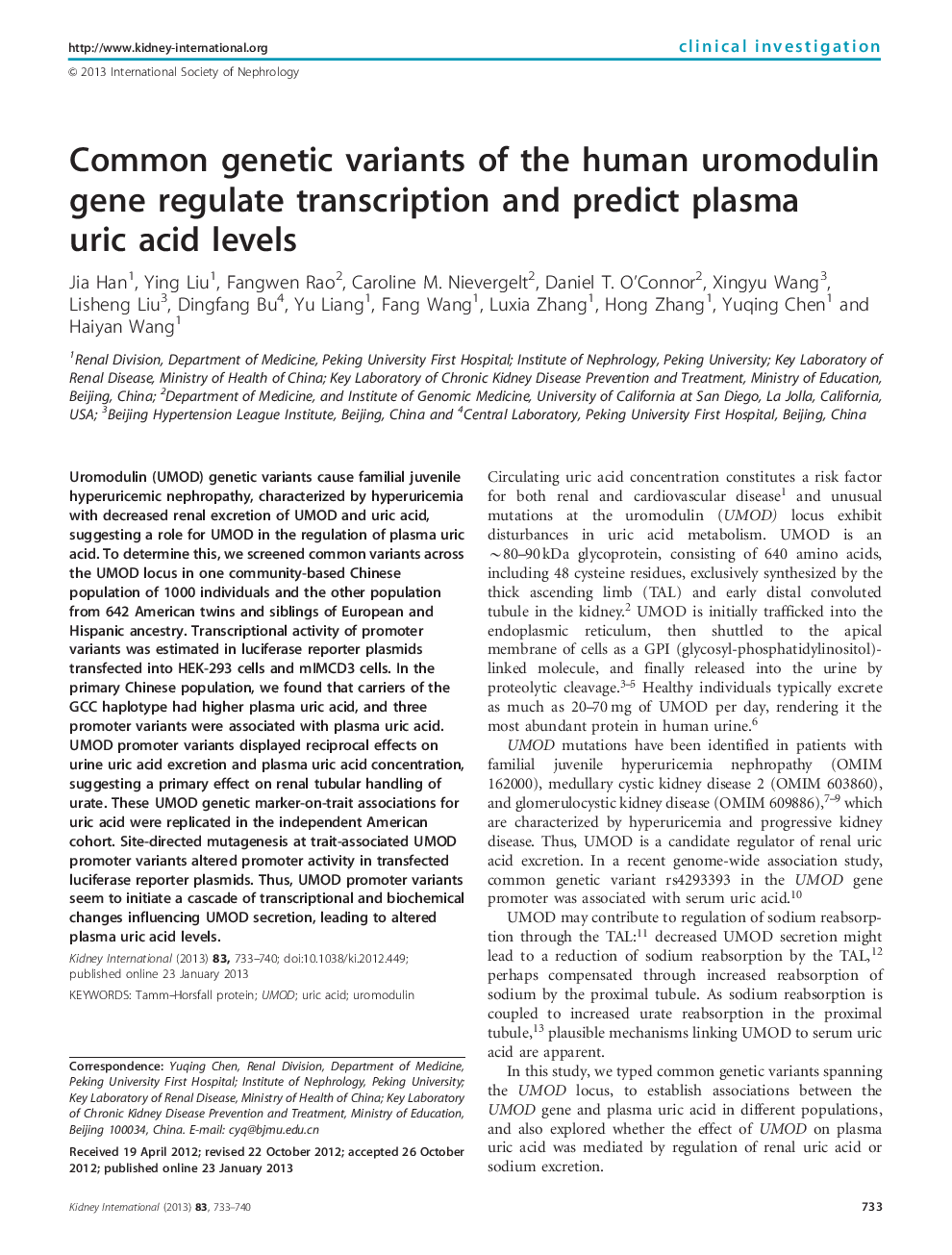| Article ID | Journal | Published Year | Pages | File Type |
|---|---|---|---|---|
| 6162194 | Kidney International | 2013 | 8 Pages |
Uromodulin (UMOD) genetic variants cause familial juvenile hyperuricemic nephropathy, characterized by hyperuricemia with decreased renal excretion of UMOD and uric acid, suggesting a role for UMOD in the regulation of plasma uric acid. To determine this, we screened common variants across the UMOD locus in one community-based Chinese population of 1000 individuals and the other population from 642 American twins and siblings of European and Hispanic ancestry. Transcriptional activity of promoter variants was estimated in luciferase reporter plasmids transfected into HEK-293 cells and mIMCD3 cells. In the primary Chinese population, we found that carriers of the GCC haplotype had higher plasma uric acid, and three promoter variants were associated with plasma uric acid. UMOD promoter variants displayed reciprocal effects on urine uric acid excretion and plasma uric acid concentration, suggesting a primary effect on renal tubular handling of urate. These UMOD genetic marker-on-trait associations for uric acid were replicated in the independent American cohort. Site-directed mutagenesis at trait-associated UMOD promoter variants altered promoter activity in transfected luciferase reporter plasmids. Thus, UMOD promoter variants seem to initiate a cascade of transcriptional and biochemical changes influencing UMOD secretion, leading to altered plasma uric acid levels.
